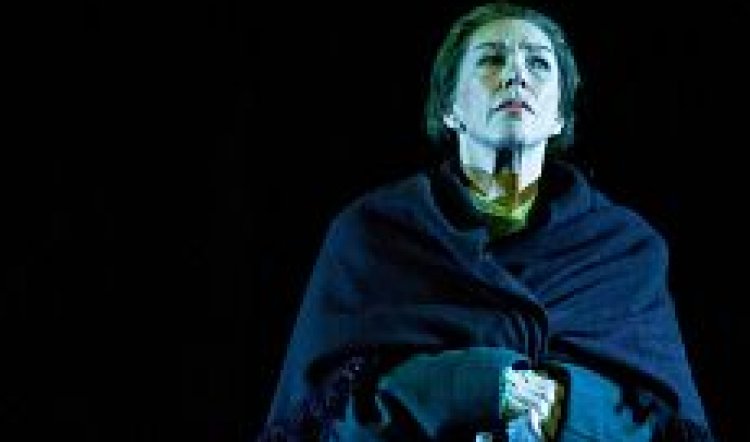
Jenufa
Jenufa, Opera NZ at the Aotea Centre, Auckland, September 23, 25, 27; St James Theatre, Wellington, October 11, 14, 16, 18; www.nzopera.com
Leos Janacek’s 1904 masterpiece Jenufa, as realised at Glyndebourne in 1989 and restaged in Auckland in 2008, turned out to be the perfect excuse to visit New Zealand’s “City of Sails”. A lot of NZ opera-lovers are also making the trip to Auckland because it’s the first time the opera has been staged in New Zealand (moving on to Wellington next month).
Jenufa’s unfamiliarity is illusory anyway: when Jenufa is scarred for life by a slash to her beautiful face, then spurned by Steva her feckless husband-to-be, it is something our Botox and eternal youth-obsessed society recognises only too well. Without her looks Jenufa is nothing.
The wounding – by Steva’s jealous brother Laca – is also full of contemporary resonance. Domestic violence is not something we’ve left safely behind in the peasant past; nor is general violence and lack of respect for women. And while young women in mainstream Australian-New Zealand society are no longer treated like pariahs or worse when they become pregnant “out of wedlock” it is still common enough among some fundamentalist sub-species.
All in all, Jenufa is a work that is as fresh and shocking, tragic and emotionally wrenching today as it was 104 years ago. And in this production the freshness is captured by a fine cast and excellent chorus and orchestra.
In the title role, French soprano Anne Sophie Duprels is well cast. Her wide-eyed youth and hope for love and a future are enacted with conviction and sweetness, while her rich, expressive voice wraps itself around Janacek’s most lyrical music to heart-breaking effect.
The engine room of Jenufa, however, is her stepmother, the Kostelnicka (church warden) Buryja and as performed by Margaret Medlyn, she is magnificent and awful. The Kostelnicka is a woman of substance in her small Moravian village. She is also a widow with responsibility for her stepdaughter and elderly mother (effectively played in this production with uneasy, vague sadness by her real life sister Helen Medlyn). The Kostelnicka's life is further complicated by the social custom that has given the village flourmill – the family’s sole means of livelihood – to the eldest son, her nephew Steva. He, in the way of so many heirs, has not turned out too well. Having taken advantage of his young and naive cousin, he is not remotely interested in either doing the right thing or giving up his playboy ways.
At the same time Laca, the hot tempered younger brother, is hopelessly in love with Jenufa despite her disfigurement. (Okay, so he caused it, but it’s a guy thing to be forgiving of himself and magnanimous to his victim.) Tom Randle, an American, is a revelation as Laca: handsome, passionate and possessed of a glorious voice and sensibility. In truth he’s probably rather too heroic to be a totally convincing surly yokel, but it does make more sense of the end as Jenufa decides to take her chances with him.
Jamie Allen is cast as the roué Steva but unfortunately was unwell on opening night, but anyone familiar with his work for Opera Australia could guess he would do a great job of sleazy Steva. Not because he is, you understand, but because he’s very good. His understudy, Derek Hill, was valiant but ultimately unconvincing. Luckily, however, Jenufa is all about the women and so this production flies. It is also enhanced by supporting performances from Emma Roxburgh in trousers as local lad Jano, and Carmel Carroll and Richard Green as a perfect pair of self satisfied petit bourgeois.

The original Glyndebourne setting, by Tobias Hoheisel with lighting by Paul Hastie, is dramatic. It opens in the front yard of the mill where the wheel slowly turns in the millrace and the grassy slope beyond affords an area of vivid green against a backdrop of mountains. Belief and desire for logic needs to be suspended if the unlikely entrances and exits are not to be a bother (some go into the mill building, others disappear mysteriously behind it; the towering gates to the yard appear to lead to nowhere in particular and so on). The interiors – of the Burya household – for the middle and final scenes are at once domestic and sparse: a wood stove on one wall, a large linen press, a table and chairs; this is a utilitarian, well kept home, nothing luxurious intrudes.
It echoes the stoic pragmatism of the Kostelnicka, and of peasant life. When she fails to persuade Steva to accept his responsibilities – despite abasing herself at his unworthy feet – her eventual solution has an inexorable logic to it. This is a woman whose daily toil is punctuated by wringing the necks of chickens, drowning unwanted litters of kittens or puppies, slaughtering a pig or sheep and taking care of death and birth as well as she can.
It is almost a given that she will take Jenufa’s baby and deal with him in a similar fashion. What else is she to do when ruin, shame and death are the only alternatives for her daughter and mother? But she has reckoned without the Catholic guilt on which she has unwittingly built her life and which will, of course, come to haunt her too.
Under the baton of Wyn Davies the Auckland Philharmonia and Opera NZ chorus take to Janacek as if they’ve been waiting all their lives to perform this tricky music. The folk elements are subtly played and there is no hint of oompah or caricature; as the drama deepens the intensity of the music becomes almost overpowering.
The original production was directed by Nikolaus Lehnhoff. It has been redirected and rehearsed for Opera NZ by Ashley Dean with assistant director Steven Anthony Whiting and they have succeeded in doing the thing we demand of modern opera choruses: that they not only sing as a chorus but also fulfill their roles as actors too. In this instance the jolly, folk dancing villagers turn only too quickly and convincingly into a snarling mob of would-be looters and lynchers.
All in all Jenufa is a long way from the “popular” works so many nervous or unimaginative managements tend to program. Rather it is dramatically, psychologically and musically satisfying and a rich experience for cast and audience alike. It’s grown up entertainment for grown ups and Opera NZ is lucky to have, in Aidan Lang, a general manager who has the guts to challenge the easy option with this fine production.



